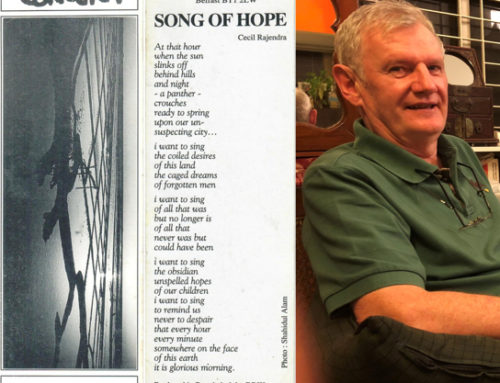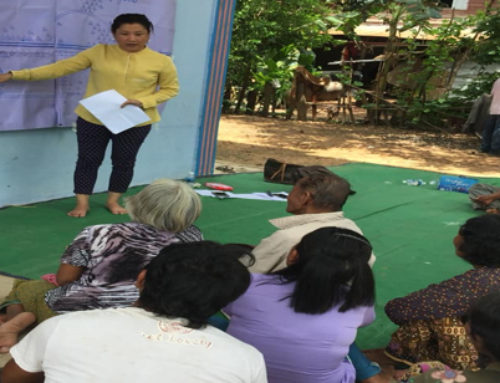Vita’s project shows the positive impact of CLTS on livelihood
A project in Ethiopia launched by Vita shows the positive impact of community led total sanitation approach by increasing livelihood options for the local community.
Since Kamal Kar and Vita launched community led total sanitation in 2006, the approach has now reached over 40% of the two million people living in Gamo Gofa.
The triggering of CLTS has culminated in a series of community led livelihood initiatives which has changed the dynamics in communities previously trapped in poverty and dependency. Four weaving cooperatives employing 240 members have been established by community collective action with limited support from Vita and Irish Aid. A highly marginalised group of women came together to form a pottery cooperative. Savings and credit, income generation and other groups have also been established by communities without external support.
An Irish Aid monitoring team comprising Peter McEvoy, Susan Frazer and Oonagh O’Connor observed the remarkable impact of CLTS and community led development in their visit to Gamo Gofa in April 2015. The executive summary states: “Community Led Total Sanitation is considered by the monitoring team to be of particular value, and not merely as an ‘entry point strategy’. There is much evidence at the field level to point towards Community Led Total Sanitation encouraging communities to be active participants in their own development and acting as a mechanism for forging community cohesion and inclusion. The community-wide benefits associated with Open Defecation Free status are of universal value to all and Community Led Total Sanitation is, therefore, a powerful development approach.”
The most significant community led initiative relates to potato development and a community led approach to tackling bacterial wilt, which is the biggest scourge of African potato farmers. Communities have come together to impose bans on import of non-certified seed, established Ethiopia’s first two community-protected seed sites which have led to Chencha having Ethiopia’s first mobile plant clinic and zonal potato board. CIP has now identified community led approaches as being vital in potato development and will work with Vita under the Potato Coalition to bring these approaches to wider communities.
CLTS has led to significant new resource mobilisation in Gamo Gofa. The community led approach is driving a new green impact fund developed by Vita which will raise EUR 1.5 million in loans for community led household energy and water provision. The community led provision of basic services such as water, sanitation, cooking energy and lighting energy will be championed under the fund for a more affordable and inclusive model that can reach the poorest households.
The author of this article is John Weakliam, Chief Executive Officer, Vita, Ireland.









Leave A Comment